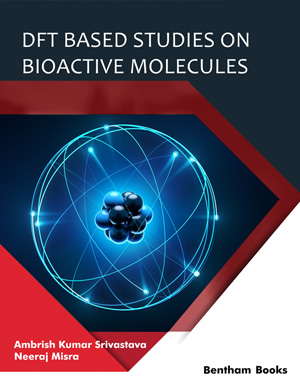Abstract
Background: The compound Sophora flavescenes (Kushen) decoction was found to reduce the inflammatory symptom of Ulcerative Colitis (UC). However, there exists a very limited understanding of the molecular pharmacological mechanisms.
Objective: This study aimed to explore the mechanism of compound Sophora flavescens (Kushen) decoction in treating ulcerative colitis from the perspective of network pharmacology.
Methods: Active components and potential targets of compound Sophora flavescens (Kushen) decoction were obtained through the Traditional Chinese Medicine Systems Pharmacology Database and Analysis Platform (TCMSP) database. GeneCards and other databases were used to predict and screen ulcerative colitis-related genes. Cytoscape software was applied to construct the “drugactive component-disease-target” network. GO function and KEGG pathway enrichment analyses revealed the potential pathway of the compound Sophora flavescenes (Kushen) decoction for UC.
Results: After the screening, a total of 124 active ingredients and 163 potential therapeutic targets for UC were obtained from the compound Sophora flavescens (Kushen) decoction. Protein interaction network analysis showed that 15 key targets could be identified for the possible treatment of UC. GO and KEGG analyses showed that the active ingredients in the compound Sophora flavescens (Kushen) decoction were mainly enriched in 2556 biological processes and 172 signaling pathways.
Conclusion: The study showed that the compound Sophora flavescens (Kushen) decoction has therapeutic effects on UC through multi-component, multi-target, and multi-pathway.
Keywords: Compound Sophora flavescens (Kushen) decoction, network pharmacology, ulcerative colitis, molecular docking, traditional Chinese medicine, protein-protein interactions.
Graphical Abstract
[http://dx.doi.org/10.1038/ajg.2009.727] [PMID: 20068560]
[http://dx.doi.org/10.1007/s00535-021-01784-1] [PMID: 33885977]
[http://dx.doi.org/10.1016/S0140-6736(16)32126-2] [PMID: 27914657]
[http://dx.doi.org/10.5009/gnl.2012.6.4.427] [PMID: 23170145]
[http://dx.doi.org/10.1016/j.cgh.2020.01.008] [PMID: 31945470]
[http://dx.doi.org/10.1080/14712598.2019.1666101] [PMID: 31498003]
[http://dx.doi.org/ 10.1016/j.resinv.2017.01.002] [PMID: 28427750]
[PMID: 32829958]
[http://dx.doi.org/10.1038/ajg.2011.70] [PMID: 21407179]
[http://dx.doi.org/10.1080/17474124.2019.1604219] [PMID: 30947569]
[http://dx.doi.org/10.1097/MD.0000000000019768] [PMID: 32311981]
[http://dx.doi.org/10.1093/bib/bbab106] [PMID: 33834186]
[PMID: 16780157]
[http://dx.doi.org/10.1186/1758-2946-6-13] [PMID: 24735618]
[http://dx.doi.org/10.3390/ijms13066964] [PMID: 22837674]
[http://dx.doi.org/10.1002/jbt.21883] [PMID: 28000380]
[http://dx.doi.org/10.3389/fimmu.2021.679897] [PMID: 34367139]
[http://dx.doi.org/10.1002/ibd.21573] [PMID: 21830274]
[PMID: 18575316]
[http://dx.doi.org/10.1038/nm1284] [PMID: 16127437]











